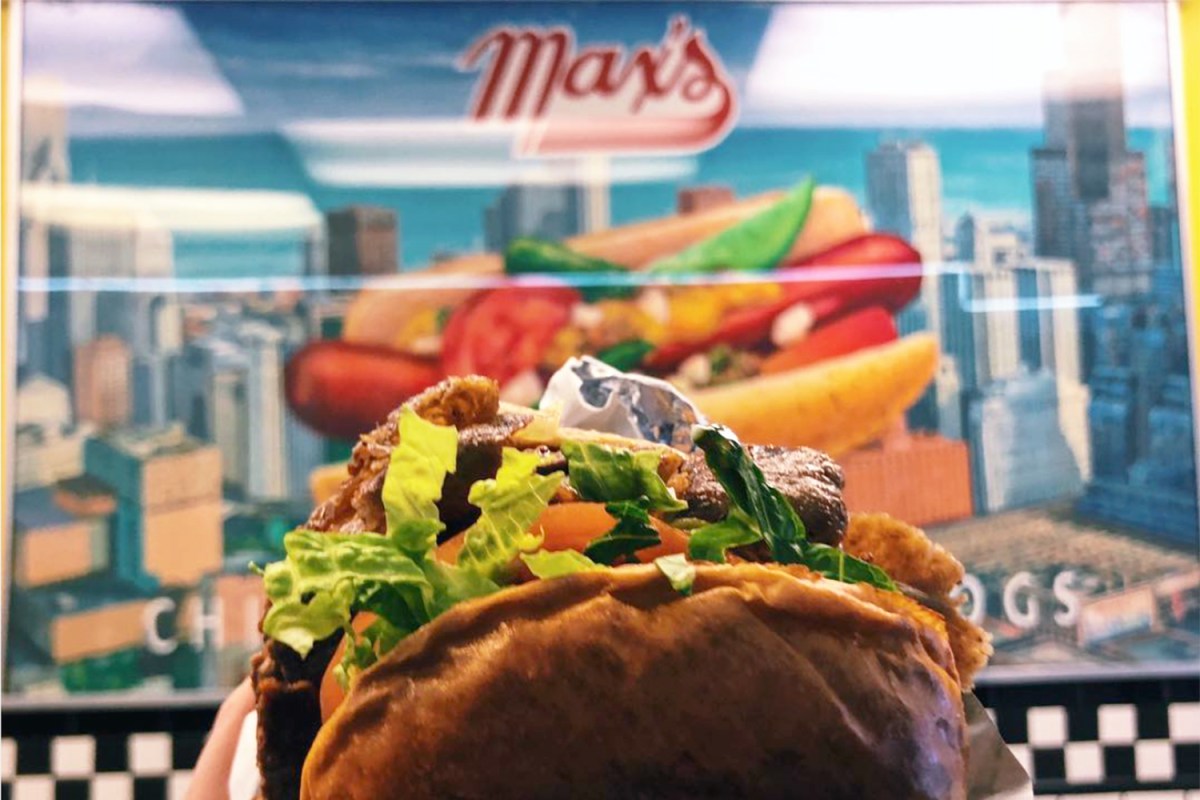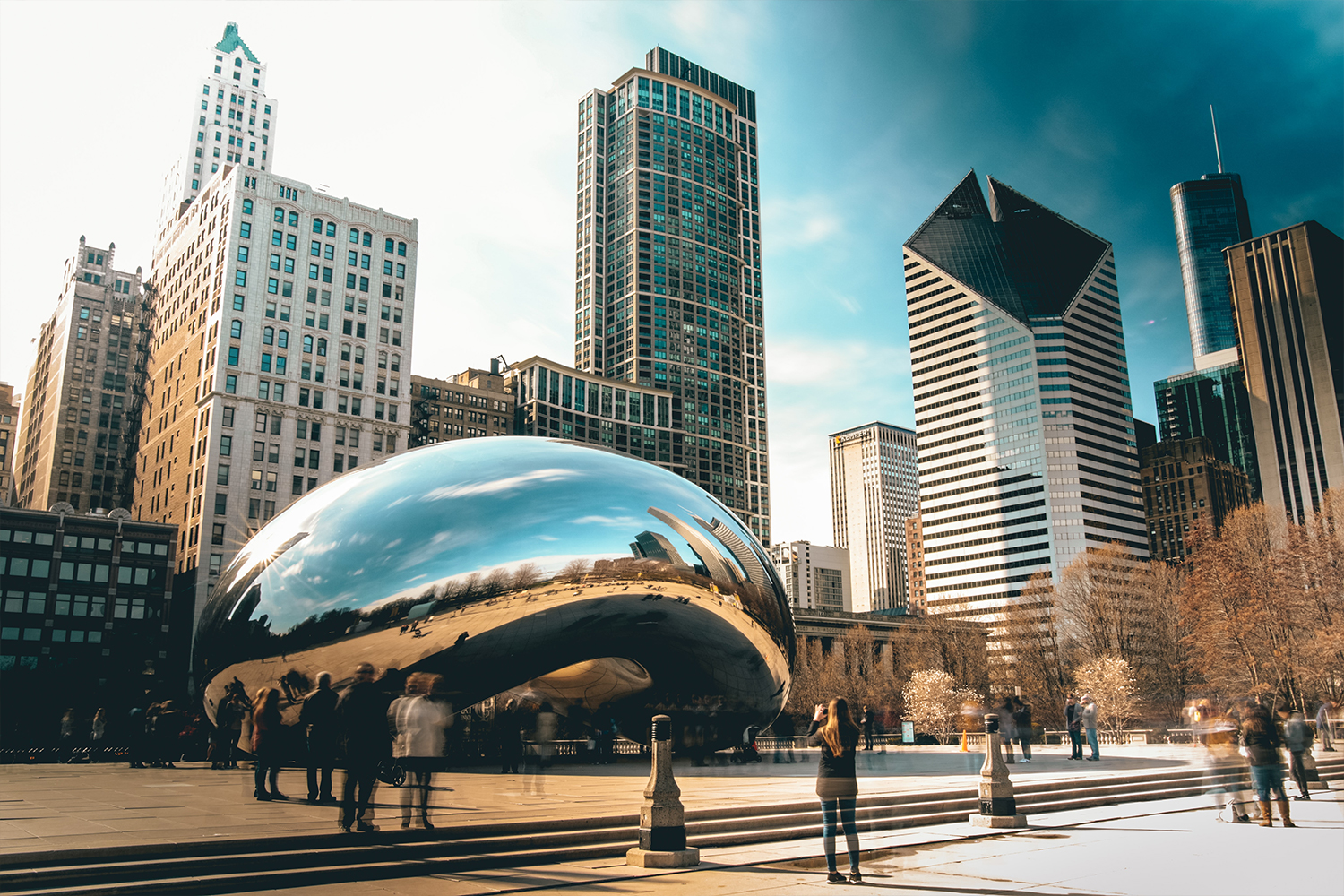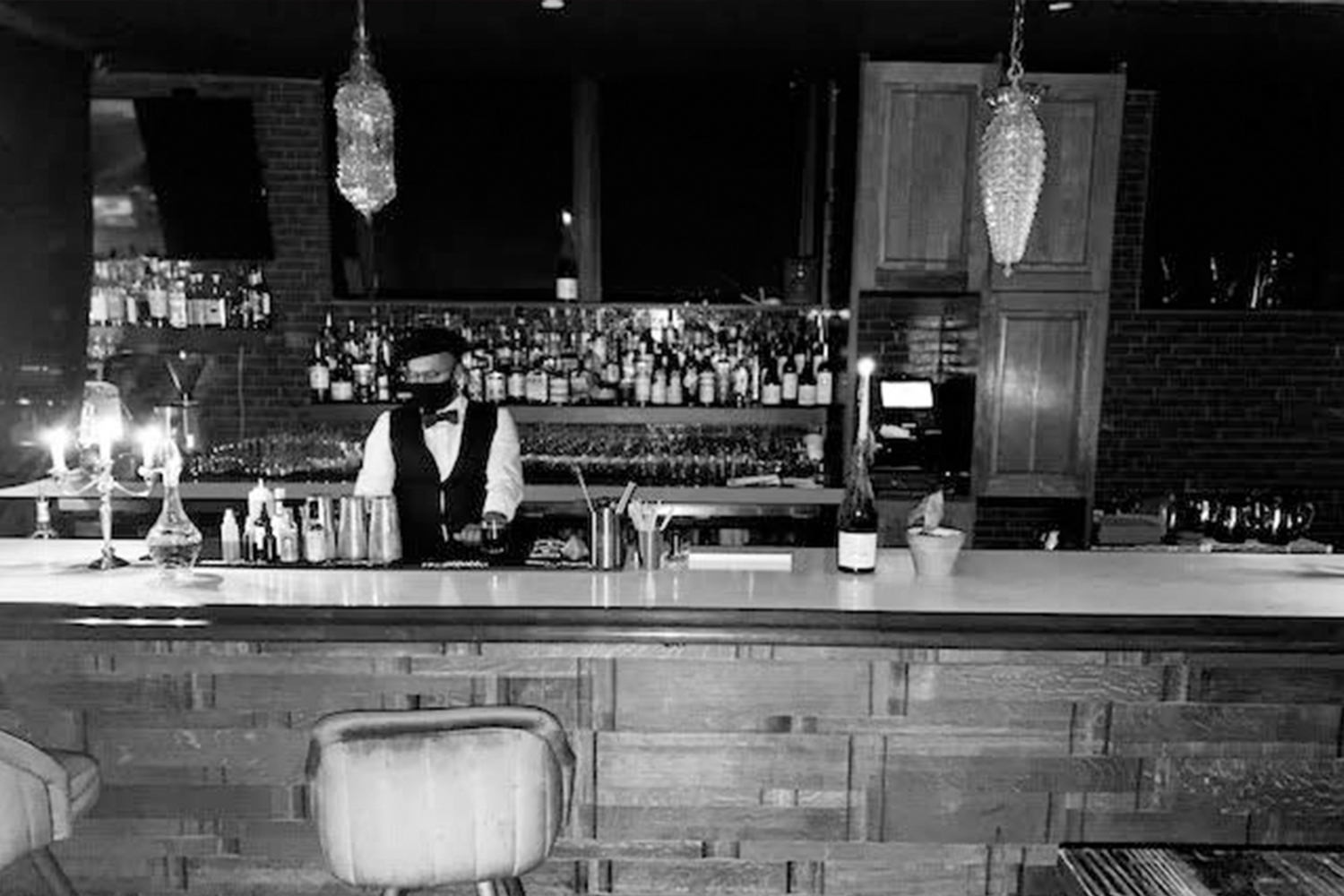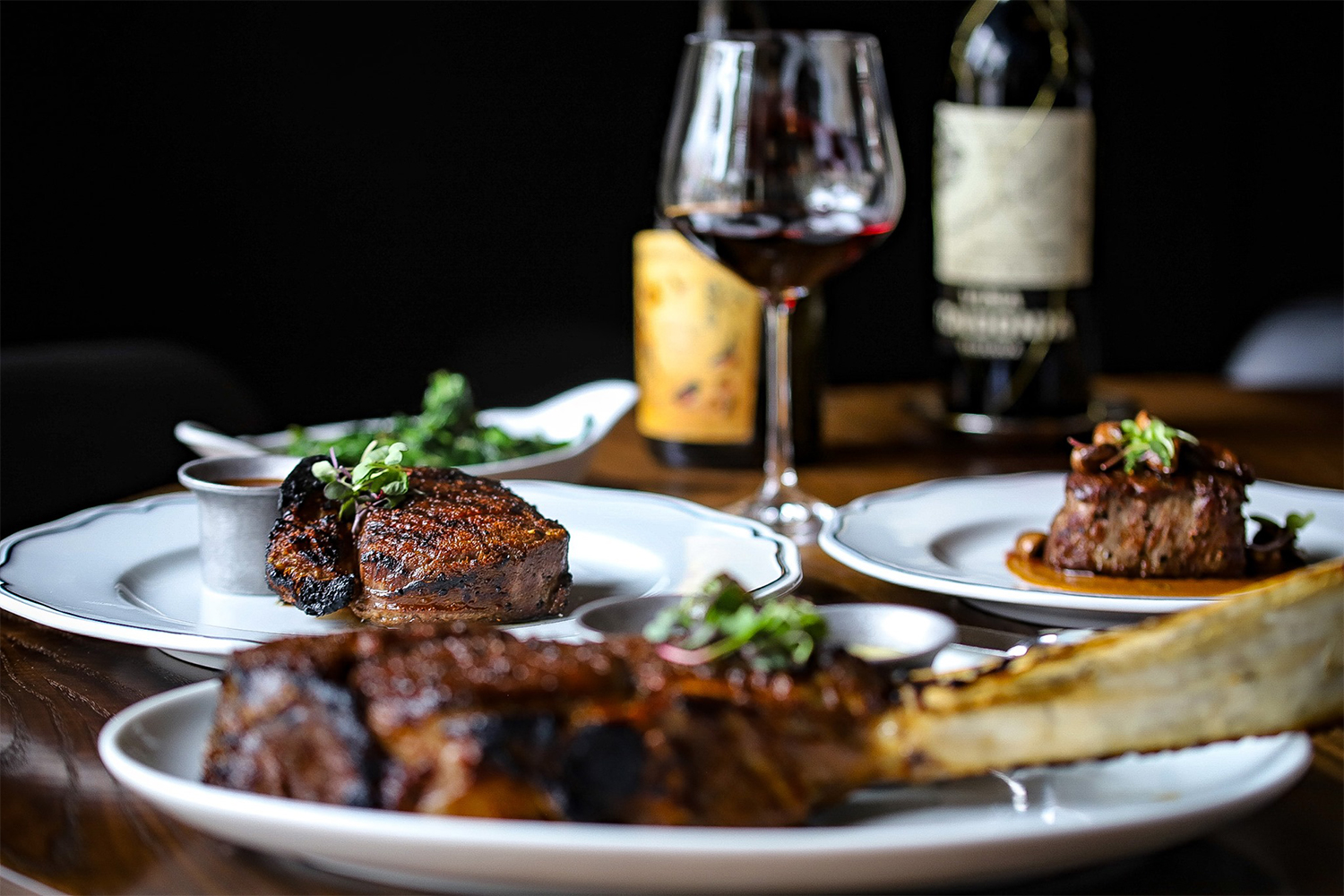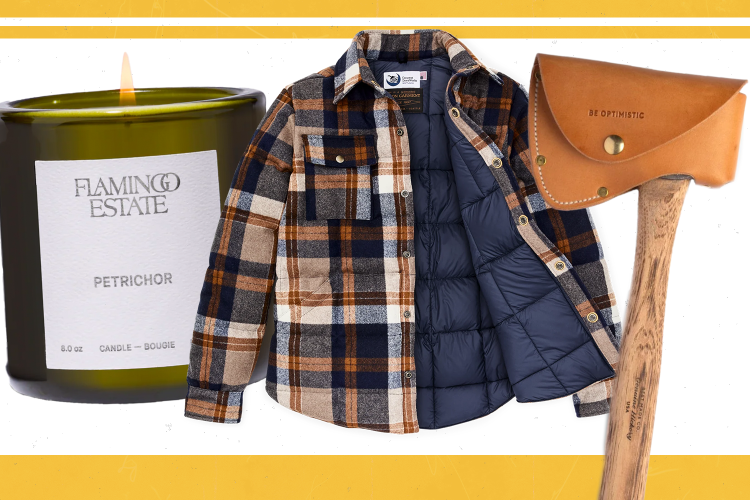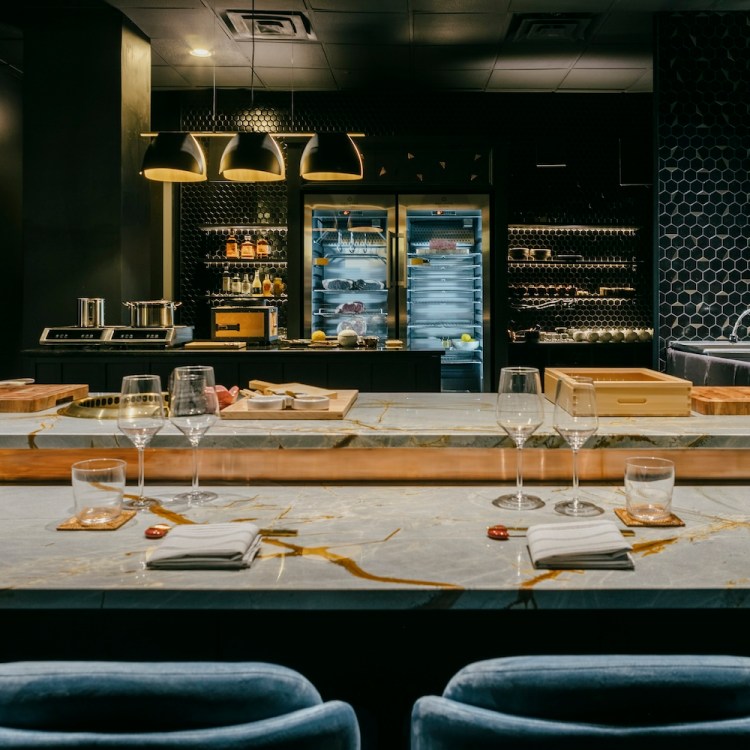The past year has been brutal for small businesses. Businesses in Chicago, where the state shuttered restaurants and bars in March 2020 as COVID rates climbed, have been hit especially hard; spring and summer protests exacerbated the pandemic’s economic toll.
Between March 1 and August 31, 2020, 5,000 businesses closed in Chicago, most permanently, making it the U.S city with the fourth-highest pandemic-prompted closures, according to a September Yelp report on the virus’s economic impact.
But the situation is not all gloom and doom. One year into the pandemic, InsideHook spoke with six Chicago proprietors who have innovated out of necessity, pivoting toward exciting new projects to keep their beloved businesses afloat.
Max’s Take Out
For more than 25 years, Max’s Take Out was a Loop staple serving Chicago-style hot dogs, Italian beef and burgers to office workers, college students, tourists and theatergoers. Workers prepped regulars’ orders as they walked in. “My employees knew their customers,” says owner Max Khan. As chains displaced small eateries, Max’s became the Loop’s “last independent hot dog stand,” Khan says.
But when the pandemic emptied offices, dormitories, hotels and cultural destinations downtown, business dropped 80 percent. Block closures during the summer’s protests didn’t help. Khan tried to stay open for regulars and employees — some with him for decades — but in February, he announced Max’s would close, prompting an outpouring of love and dismay. But Max’s fans may taste their favorites again. Khan is exploring a Max’s Take Out food truck: “It will feel so nice to see the old customers again,” he says.
Passerotto
Celebrated by Michelin (which bestowed upon it Bib Gourmand honors) and James Beard (which named it a 2019 Best New Restaurant nominee), Jennifer Kim’s Andersonville Korean restaurant ended a remarkable three-year run in September 2020. “With no government relief on the horizon — and hearing horror stories of restaurant workers forced to go back under dire conditions — we no longer felt safe to operate,” Kim says. “It was a heartbreaking decision, but not a hard one.” Kim has found subsequent months to be “regenerative and explosively creative.”
She launched a new project, Alt Economy, to collaborate with “other micro-economies within the hospitality industry,” including on a sold-out Valentine’s Day lineup of artisanal cheese boxes, charcuterie, bouquets, cocktails, desserts and Instagrammable “Neon Surreal Jung Gu Valentine” packages containing “Everything you’ll ever want or need for a memorable night spent with the ones you love + adore.” Kim hopes people will “engage in our mission to explore alternative economies that directly benefit hospitality workers and their own solo ventures.”
Fahlstrom’s Fresh Fish Market
Before the March 2020 restaurant-and-bar closure, Glenn Fahlstrom recalls, Fahlstrom’s Fresh Fish Market, the seafood-centric Lakeview restaurant he’d opened in 2014, had hundreds of reservations and was anticipating a lucrative season. Immediately, he says, that disappeared — and reopening seemed unsustainable and unsafe. “It’s impossible to maintain social distance in the kitchen,” he observes. He saw no alternative but to permanently shutter the eatery, known for its simple, fish-forward approach. “I made that decision early, on May 1,” Fahlstrom says. “I saw the writing on the wall.”
Now Fahlstrom wants to get ahead of another trend: cannabis, now legal in Illinois. Though not ruling out another restaurant, he is pursuing a certification to enter a growing industry and speaks as enthusiastically of marijuana varieties and benefits as he once discussed the flavor profiles of snapper, salmon, sea bass and sturgeon. He may also resume a previous career — acting — and hopes, when safe, Chicagoans will “smoke some pot and go to a restaurant.”
Uptown Arcade
They came for the craft beers and stayed for the pinball machines, arcade and board games, and throwback ’70s/’80s vibe — or vice versa. Uptown Arcade, which opened in spring 2016, was beloved by neighbors and post-show visitors from the nearby Riviera Theatre, Aragon Ballroom and Green Mill Lounge. Business was “rocking” before the March 2020 shutdown, but reopening afterward proved challenging, owner Aaron Allen says, and with an expiring lease, he closed the Uptown bar/arcade in November. Thirsty pinball fans need not despair; Allen and collaborator Katie McDonald plan to open under a new name in a new neighborhood: Rogers Park, close to Northwestern and Loyola universities. The games, drinks, and retro aesthetic will still be there, and Allen plans a menu of “roller rink food: funnel cakes, nachos, popcorn, stuff like that.” The revival should please hopeful romantics. “We were huge with Tinder dates,” McDonald says. “People could safely meet, take a game to the back, watch an old movie on VHS.” Allen laughs, noting, “When conversation stops on a bad date, there’s always Skee-Ball.”
Barton G
When restaurateur/special events maven Barton G. Weiss brought his over-the-top fine-dining approach to Chicago, opening a 12,000-square-foot River North space in February 2019, customers loved the whimsical decor (a wall of monkeys!) and tongue-in-cheek, prop-heavy presentations — with foods served on giant mouse traps, in popcorn machines, even plastered onto a towering Marie Antoinette head. “The Dolla Dolla Bills Y’all” dessert, featuring a s’mores-inspired edible-gold-covered chocolate brick, gilded ice cream nuggets and a giant $100 bill, was “the dish almost every table ordered,” Weiss says. But challenges from COVID and vandalism proved too rich; the restaurant announced its closure in September. Weiss has pivoted to Barton G.’s Miami location and hopes to reopen the Los Angeles outpost and, eventually, expand. In the meantime, he says, customers can support the restaurants by buying gift cards and engaging the company for virtual or socially distanced event production.
Martha Mae
At the Andersonville shop she ran for four years, Martha Mae (named after her Cavalier King Charles Spaniel, Martha), Jean Cate sold art supplies and “beautiful things.” A School of the Art Institute of Chicago-trained artist, she’d opened the shop as a “supportive space” in which to connect, spark creativity and propel growth. It was, she muses now, “my own little cocoon in the public sphere.” But with COVID driving most business online and her lease up for renewal, in August, Cate closed her brick-and-mortar business to focus on her Internet shop, where sales have been strong, along with pickups and pop-up collaborations with other businesses. She’s taking time to work on creative projects (painting, illustrating), ramp up her newsletter and mull a new space, perhaps an art showroom less oriented toward food traffic with limited hours. “Nothing showcases that you can do things differently better than the whole world stopping,” she says.
This article was featured in the InsideHook Chicago newsletter. Sign up now for more from the Windy City.
